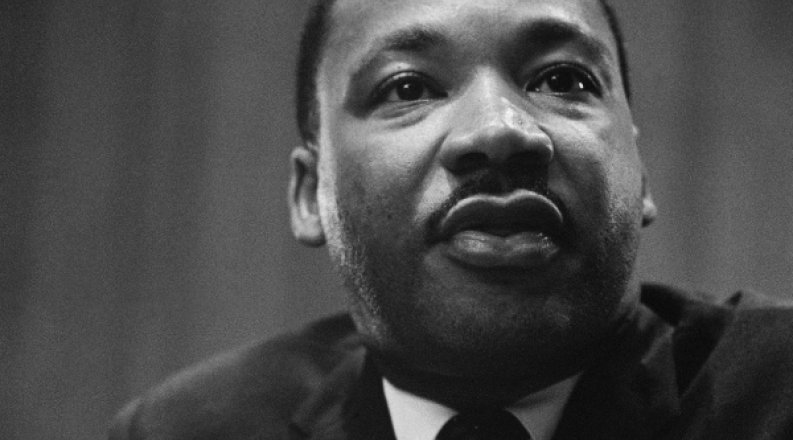Dear Students, Faculty, and Staff:
Today, as a nation, we pause to celebrate and reflect on the life and legacy of the Rev. Dr. Martin Luther King, Jr., who, in his short time, galvanized a nonviolent national movement for racial justice that continues to this day. Dr. King is widely acknowledged as the most prominent leader of the American civil rights movement. The 1963 March on Washington stands out as a pivotal moment when more than a quarter of a million Americans gathered peacefully to hear his iconic "I Have a Dream" speech. For his nonviolent approach to achieving transformational change, Dr. King was awarded the Nobel Prize at the age of 35.
Dr. King's actions helped to ensure the passage of the Civil Rights Act of 1964, which ended a practice that was part of everyday life in America until that time: legal racial segregation in public places. The law also banned job discrimination on the basis of race, color, religion, or national origin. In 1968, just days after an assassin's bullet struck down Dr. King, President Johnson signed the Civil Rights Act of 1968. A key element of the legislation was the Fair Housing Act, which prohibited discrimination in housing based on race, religion, national origin, and sex.
Dr. King was a friend and confidant of the late Dr. Hugo A. Owens, Old Dominion University's first African American rector and for whom the new state-of-the-art Hugo A. Owens residence hall is named and fondly referred to as Owens House. After Dr. Owens graduated from dental school at Howard University, Dr. King tried to persuade him to move to Atlanta to join him in advancing the work of the civil rights movement. But, Dr. Owens felt such a strong commitment to his community that he dedicated his life to working for civil rights in his own backyard. He was one of the state's leading civil rights pioneers, which included suing to integrate Portsmouth's parks and libraries. He also served for ten years on Chesapeake City Council, including eight as vice mayor.
Old Dominion University will proudly host its annual Dr. Martin Luther King, Jr. observance event in conjunction with the University's celebration of Black History Month in February. Today, as we celebrate this national holiday, I hope Monarchs are inspired by Dr. King and Dr. Owens to do their part to make their own communities beacons of equality and justice. Dr. King did not undertake any of this important work on his own. He always brought others along with him, without whose strength and commitment nothing would have been possible. I hope Monarchs all over the world will stop today and consider what they can do to make their communities places of equity and opportunity!
With Monarch Pride,
Brian O. Hemphill, Ph.D.
President



